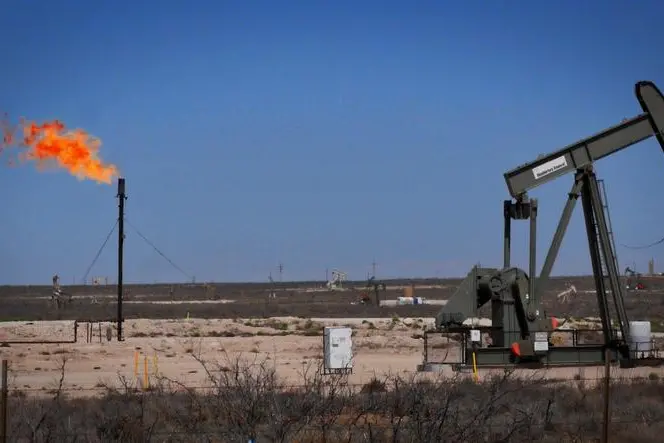PHOTO
(John Kemp is a Reuters market analyst. The views expressed are his own)
LONDON - Hedge funds continued selling petroleum in anticipation of a sharp downturn in oil consumption, even before major governments announced tougher travel restrictions late last week.
Hedge funds and other money managers sold another 58 million barrels of petroleum futures and options in the six major contracts in the week to March 10, exchange and regulatory data showed.
Total sales since the start of the year have reached 637 million barrels – in two waves, the first lasting roughly from Jan. 7 to Feb. 18 (457 million over six weeks) and the second since Feb. 18 (180 million over three weeks).
By March 10, hedge funds had established one of the most bearish positions in petroleum since oil prices slumped in 2014/15.
Portfolio managers have continued selling despite already-low prices and the existence of stretched short positioning, both of which would normally be a signal to start trimming short positions and rebuilding long ones.
But the outbreak of a volume war between Saudi Arabia and Russia has compounded the effects of coronavirus on transportation and oil consumption, creating a second wave of hedge fund selling.
Funds were major sellers last week of Brent (-74 million barrels) and small sellers of U.S. gasoline (-6 million) but buyers of U.S. diesel (+10 million), European gasoil (+5 million) and WTI (+8 million).
At least some fund managers appear to have been starting to cover short positions in middle distillates, the part of the petroleum complex hit hardest by coronavirus.
But the proliferation of travel restrictions since then and the near-certainty of recession as many businesses curtail normal activity is likely to have unleashed even more selling in more recent days.
With most passenger airlines cancelling flights, many employees being encouraged to work from home, and some countries on almost complete lock down, transportation fuel consumption will be hit hard.
In the short term, travel restrictions and social-distancing measures will reduce global oil consumption by several million barrels per day, the largest drop over such a short period on record.
The impact is set to spread from middle distillates (which are more closely linked to manufacturing and freight) to gasoline (more closely linked to consumers).
For as long as severe travel restrictions continue, the proportionate drop in consumption is likely to be the largest since World War II, exceeding the recession of 2008/09 and the oil shocks of 1979/80 and 1973/74.
(Editing by Barbara Lewis) ((john.kemp@thomsonreuters.com and on twitter @JKempEnergy))





















